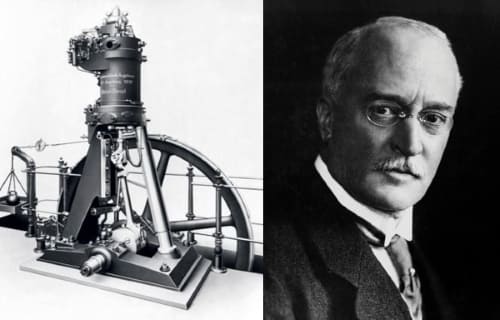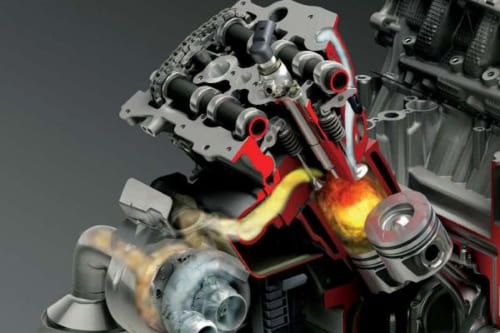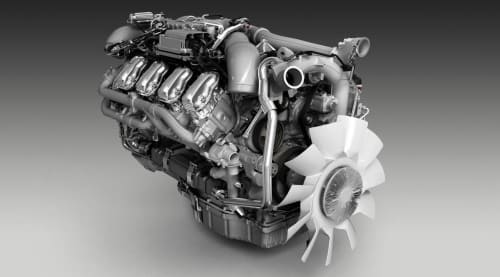
Many drivers who have already opted for a diesel vehicle are aware of the advantages and disadvantages. However, those who are just starting out with these types of drives may have many questions. We will try to deal with these in our article.
Contents
Diesel Engine: History
The diesel engine was first conceived in 1824 when the French physicist and mathematician Sadi Carnot theorized that a heat engine should be more efficient and the working fluid within it should be heated to its flash point by rapid compression. This principle was later used as the basis for the first diesel engines.
Over the years, various scientists have worked on the manufacture of diesel engines, including Herbert Akroyd-Stuart and Gustav Trinkler. But it was only in 1887 that Rudolf Diesel succeeded in developing the first practical and efficient prototype.

The inventor originally believed that pulverized coal was the best fuel for his engine, but due to the abrasive characteristics and complications of feeding this fuel to the cylinders, he had to scrap the idea. On the other hand, the diesel invention worked well with vegetable oil and light oil products.
The diesel engines have been continuously improved and modernized since then. Many modern cars and most commercial vehicles are equipped with these powerful, reliable and effective units.
The working principle
Today, most cars are powered by 4-stroke engines. Its work cycle includes 4 stages:
- Intake, corresponding to the crankshaft rotating from 0º to 180º. At this stage, air enters the cylinder through an open valve.
- Compression: During this stroke, the crankshaft goes from 180° to 360°. The piston causes the air in the chamber to be compressed 16-25 times and its temperature to rise to 700-900 °C.
- Combustion: At this stage, the crankshaft is at 360-540 °, the fuel is injected and ignited. The substances produced in this way bring the piston down.
- Exhaust: When the crankshaft rotates 540° – 720° to its starting position, the piston moves up and the burnt gases are exhausted.

In diesel engines, fuel is supplied via an injection pump. There are several types of fuel pumps in modern cars:
- In-Line.They contain pairs of pistons that correspond to engine cylinders. The camshaft, which is connected to the crankshaft, causes the piston to move, which alternately opens and closes the intake ports. As a result, pressure is created to open the injection valve and the fuel enters the corresponding injector. These pumps are very reliable, but are mostly fitted on freight vehicles: producers stopped assembling cars with in-line pumps in 2002.
- Distributors:Their structure is characterized by one or two pistons that make rotary and reciprocating movements and distribute the fuel between all the cylinders. This will ensure more even fuel distribution, but the components will wear out. Therefore, distributor pumps are mostly installed in automobiles.
- High-pressure pumps Used in common fuel supply systems and used to pump the fuel into the fuel rail, where the high pressure is maintained at all times regardless of engine operation becomes. With this system it is possible to increase engine torque by 25% at low revs and reduce fuel consumption by 20%.
- Injectors.A fuel injector with compression and injection functions corresponds to each cylinder. The use of this equipment makes it possible to increase the car's fuel efficiency and reduce exhaust toxicity, since the injection process itself takes place in three stages. The pre-injection ensures smooth combustion, while the post-injection makes soot filter regeneration easier.
Five essential advantages of diesel engines
- You consume significantly less – average 30% – Fuel compared to gasoline engines. This is due to the high pressure in the ignition chambers, the engine design, its working principles and a number of other factors. In addition, diesel fuel costs less than petrol in most countries.
- In diesel engines, fuel burns continuously after being introduced internally, ensuring high torque at low rpm. This improves the traction, dynamics and maneuvering performance of the car.
- They have a high efficiency, up to 50%.
- Thanks to the glow plugs and the heated nozzles, the diesel engines start regardless of the ambient temperature.
- They last almost twice as long as petrol engines.

Diesel Engines: 9 Rules of Operation by CarTipsandmore Experts
Observe these simple rules to prevent frequent repairs to the drive and fuel system:
- Change the fuel filter and fuel water separator in time. The diesel components are very sensitive to mechanical particles and water. Due to the complicated structure, nozzles and pump components are easily clogged, while the sulfur from the fuel mixes with water and turns into sulfuric acid, which adversely affects the engine components.
- Make sure you use quality fuel fill up. The high sulfur content in high-quality fuels significantly reduces the life and efficiency of engine oil and can lead to a failure of the soot filter.
- Avoid driving at high speeds: it creates an additional load on the engine.
- Always make sure your fuel matches the ambient temperature. Diesel fuel contains paraffin, which freezes at low temperatures. Therefore, in winter it is recommended to use winter fuel (at temperatures between -25 ° C and 0 ° C) or arctic fuel, which maintains its viscosity at temperatures between -35 ° C and 0 ° C. Garages usually list the temperature range of the fuel they sell.
- Thoroughly selected additives for diesel fuel. If you drive in regions with a harsh climate, the anti-gel formulas are a good option for your car. There are also additives that make it possible to increase engine torque and capacity, increasing the efficiency of combustion of the air-fuel mixture, as well as cleaning agents for the drive and fuel lines.
- Alternative driving in cities with country trips to run the engine at 2,500 rpm from time to time. In this driving mode, the soot and carbon deposits burn off, reducing the risk of fuel injector coke, piston ring sticking and catalytic converter failure.
- A car's turbocharged engine should not be used immediately after the standstill, leave it for 2-5 minutes to allow the turbine to cool down.
- Always buy the motor oil recommended by your vehicle manufacturer and do not mix lubricants with different viscosities.
- Start smoothly to avoid damage to the turbine bushings.
Conclusion
Modern diesel engines are economical and efficient. Despite the stereotypes, they are environmentally friendly and quite silent. Cars equipped with diesel engines have a good fit for smooth country driving; They are comfortable for large groups and families and will not fail even with frequent use. They are very reliable off-road, hence their popularity among fishing, hunting and outdoor enthusiasts. However, if you've always thought of a sports car, or you tend to suddenly accelerate and brake, a diesel car won't suit you: aggressive driving is too much strain on the engine.
The repair of a diesel engine costs a lot. However, based on the advice above, this means a repair is needed and it won't happen often.
